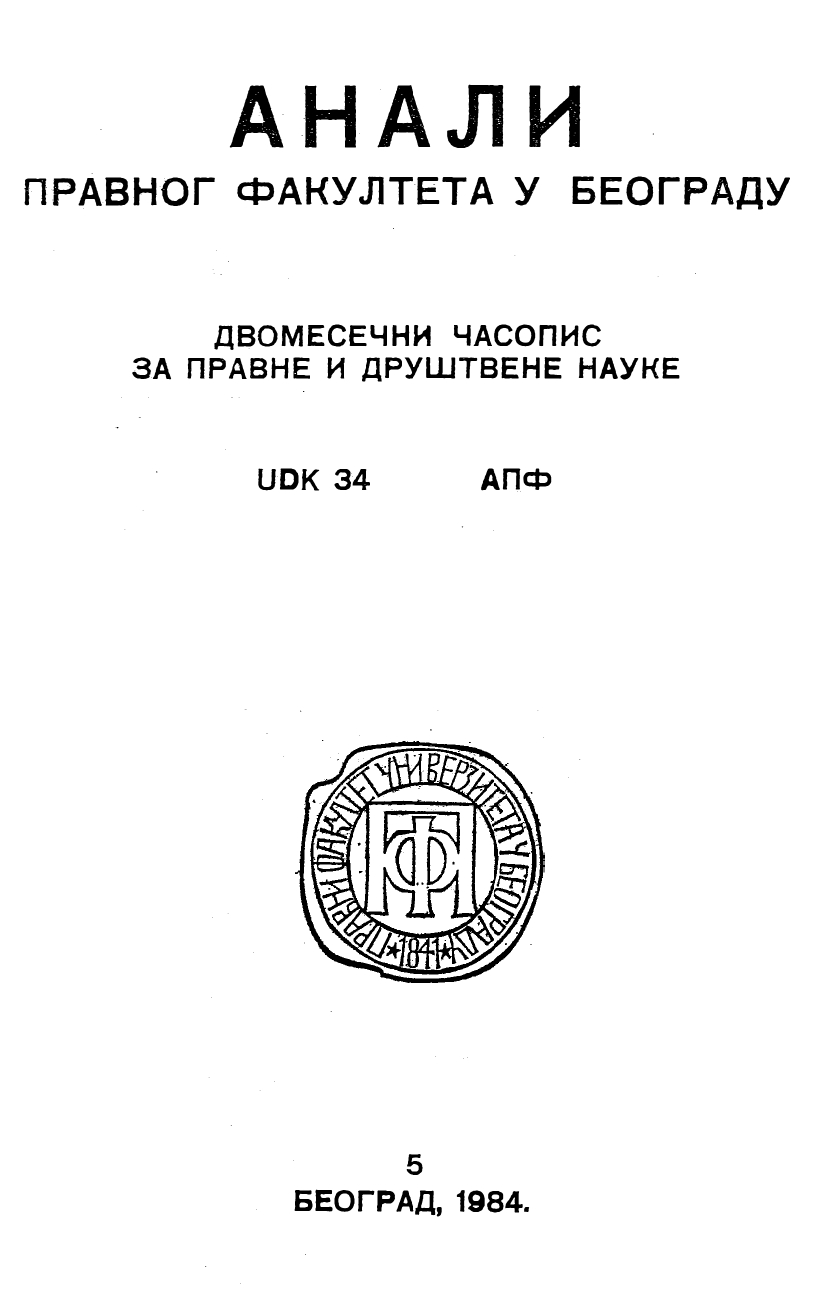СРПСКИ ПРЕВОД ХЕКСАБИБЛОСА ПЕТРА ВИТКОВИЋА
THE SERBIAN TRANSLATION OF »HEXABYBLOS« BY PETAR VITKOVIČ
Author(s): Sima AvramovićSubject(s): Christian Theology and Religion, History, Language and Literature Studies, Middle Ages, Theology and Religion, 13th to 14th Centuries, Eastern Orthodoxy, Translation Studies
Published by: Правни факултет Универзитета у Београду
Summary/Abstract: A small number o sources still offer information that, in the last decade of the XVIII century, the Yegarian priest Petar Vitković translated the famous work of the Thessalonika jurist Constantin Armenopulos »Hexabybloss« in to the Serbian language by order of the Archbishop Stratimirović. Although this Serbian translation of the famous Vizantinian codex, unknown and virtually unrecorded in the Yugoslav literature of the history of law, has not been preserved, since the manuscript was burnt in Budapest in 1810, the author has made an attempt to analyse its legal and political significance, as well as the couse of its origin, on the basis of the scarce-direct and indirect- sources. Two groups of conditions can be distinguished as the possible motivation of the Serbian priests to decide upon this translation: firstly, clerical and legal factors; secondly, national and political factors. The disorderly and incomplete state of the Orthodox Canonian law, which was in use in the residence of the Archbishop, Karlovac, for the Serbian people in the Austro-Hungarian Empire, necessitated the systematic classification of especially the so-called authoritative church (clerical) sources. Whats more, the motive for this translation was also the necessity of the modernization of the Orthodox Church marriage and family law, simultaneously with the aspiration of preserving its authority. On the other hand, the translation of the Orthodox Vizantinian Codex, which at that time had been published in the new Greek and Bulgarian languages, and had successfully been in use among the Orthodox — religious people under the Otoman rule, was in agreement with the main policy of the Serbian Orthodoc Church clergy. That policy was, the struggle for the preservation of the Orthodox religion, the idea of national emancipation, and the discrete political inclination toward Russia. However, there are no absolutely verified facts to prove that there was also the aspiration inaugurate the implementation of Roman law in the process, and bring it closer to Austrian law, nor that it was the expression of the wish to enliven the Medieval Serbian State and legal tradition. The translation, however, does clearly represent an attempt to bring closer Greek and Vizantinian legal literature to the clerical and legal culture of the Serbian people in the Austro-Hungarian Empire in the last decade of the XVIII century.
Journal: Анали Правног факултета у Београду
- Issue Year: 32/1984
- Issue No: 5
- Page Range: 677-691
- Page Count: 15
- Language: Serbian

